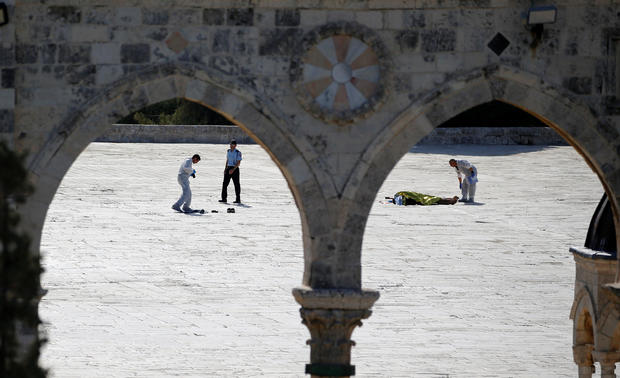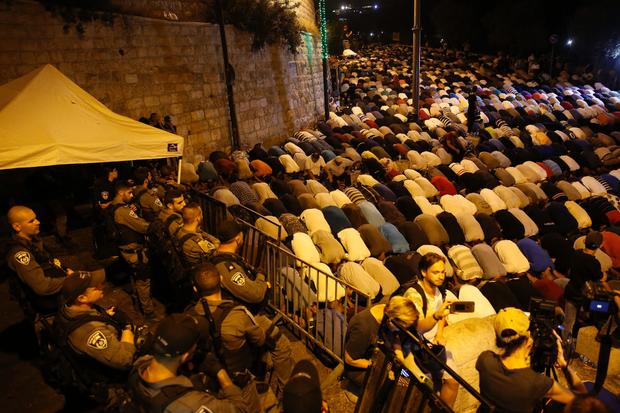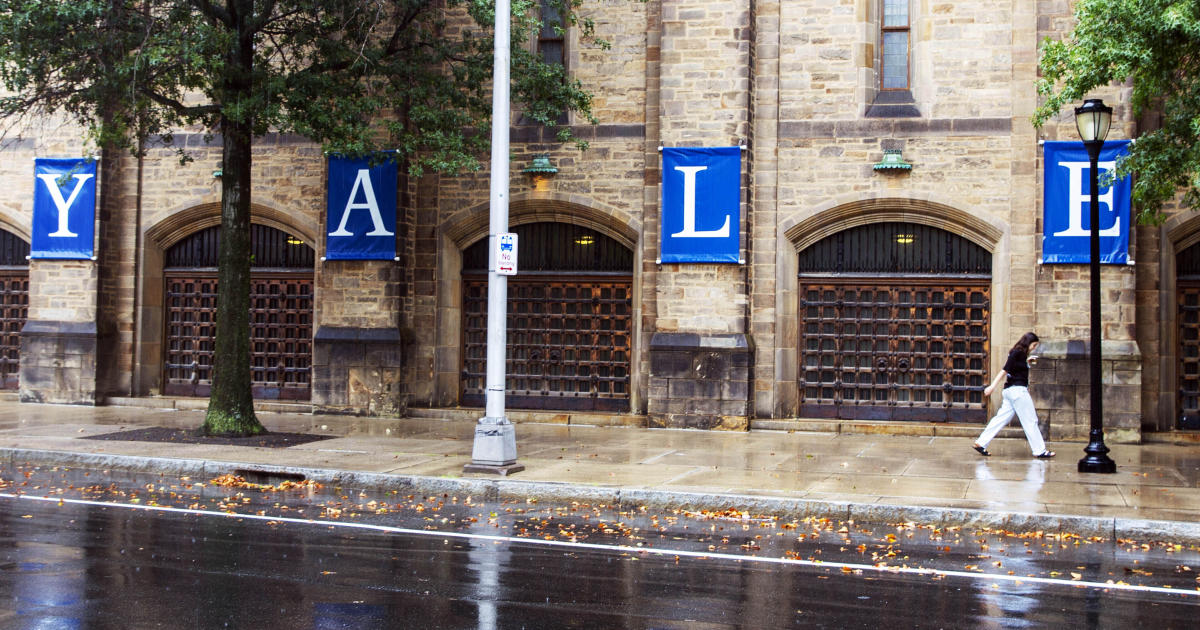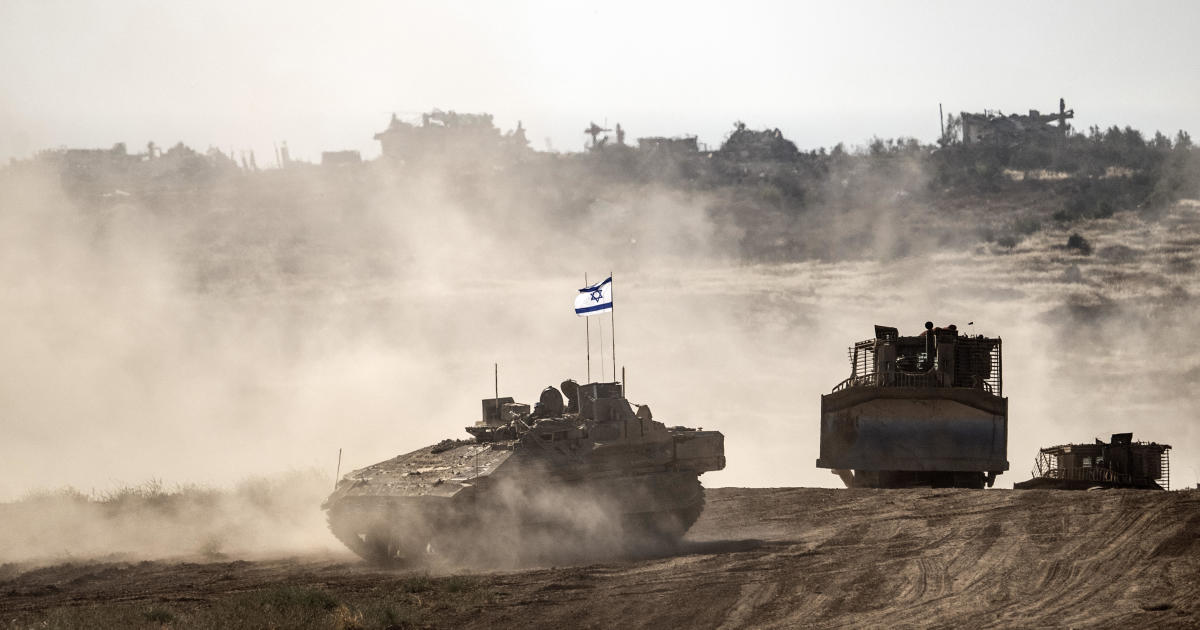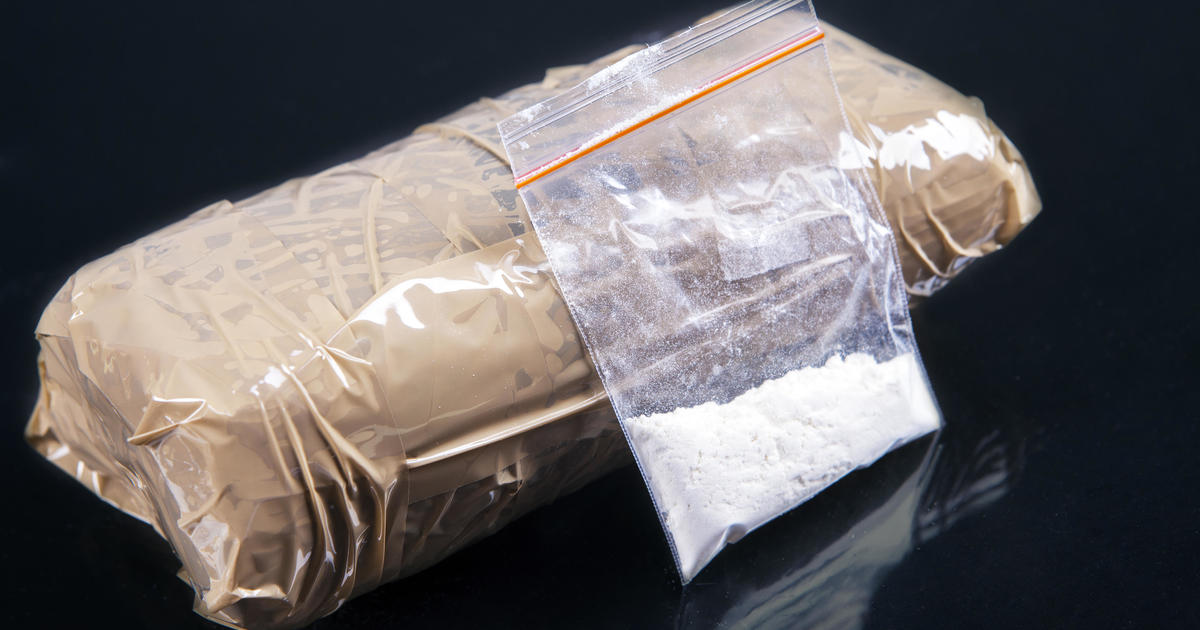Israel removes metal detectors from Jerusalem holy site
JERUSALEM -- Muslim leaders urged the faithful on Tuesday to keep up their prayer protests and avoid entering a contested Jerusalem shrine, even after Israel dismantled metal detectors that initially triggered the tensions.
Israel said it would replace the metal detectors with new security arrangements based on "advanced technology," reportedly including sophisticated cameras, but said it could take up to six months to install them.
Muslim clerics have demanded that Israel restore the situation at the shrine - the third holiest in Islam and the holiest in Judaism - to what it was before it installed the metal detectors last week.
The clerics said Tuesday that they need time to study the proposed new Israeli measures. "We need to know all the details before we decide to pray inside the compound," said the mufti, or top Muslim cleric in Jerusalem, Mohammed Hussein.
Muslim worshippers heeded the call of the clergy, with dozens performing noon prayers in the streets outside the shrine on Tuesday.
The continued protests meant that the escalating crisis between Israel and the Muslim world, which began in mid-July, has not been defused, even after Israel backed down on the metal detectors.
Jordan, the Muslim custodian of the shrine, has played a key role in trying to end the showdown over the holy site.
Over the weekend, Jordan's efforts were complicated by a shooting at Israel's Embassy in Amman in which an Israeli guard killed two Jordanians after being attacked by one with a screwdriver.
A 24-hour standoff was resolve after a phone call between Jordan's King Abdullah II and Israeli Prime Minister Benjamin Netanyahu.
Jordan initially said the guard could not leave without an investigation, but then allowed him and the rest of the embassy staff to leave to Israel late Monday.
The timing of the events - the evacuation of the diplomats, followed by the removal of the metal detectors - suggested a larger deal had been struck between the two countries.
The 37-acre holy site in Jerusalem's Old City sits on the fault line of the Israeli-Palestinian conflict and has triggered major confrontations in the past.
The diplomatic crisis with Jordan lent more urgency to finding a solution. The deal also coincided with a visit to Israel and Jordan by Jason Greenblatt, President Donald Trump's Mideast envoy, and the U.S. played a roll in mediating the deal, CBS News' Robert Berger reports.
His visit marked the first on-the-ground involvement by the U.S. administration since the start of the crisis over the shrine.
Israel's security Cabinet announced the decision to remove the metal detectors early Tuesday. It said police would increase the deployment of forces until the new measures are in place.
The statement said the government would budget 100 million shekels ($28 million) to implement the security plan over a period of "up to six months."
As custodian, Jordan has the final say over Muslim policies at the shrine, but also needs to consider public opinion, including among Palestinians in the Holy Land.
In his phone call with Netanyahu, Jordan's king stressed the need to "remove the measures taken by the Israeli side since the recent crisis broke out" and to agree on steps that would prevent another escalation in the future, Jordan's state news agency Petra said.
Israel captured the Old City compound, along with other territories sought for a Palestinian state, in the 1967 war. Under arrangements put in place then, Muslims administer the site and Jews can visit, but not pray there.
Jordan's ruling Hashemite dynasty draws much of its legitimacy from its role as protector of the holy site.
Israel has denied it has a hidden agenda, portraying the metal detectors as a needed means to prevent attacks.
However, the Israeli government has come under growing diplomatic pressure in recent days to reconsider the decision. It also faced growing domestic criticism that it had acted hastily, without weighing the repercussions of installing new devices at the volatile site.
The diplomatic crisis with Jordan over the embassy shooting lent more urgency to finding a solution.
On Monday evening, Israeli Prime Minister Benjamin Netanyahu and Jordan's King Abdullah II spoke by phone.
Following the conversation, the Israeli Embassy staff, including the security guard who had killed two Jordanians after being attacked by one with a screwdriver, returned to Israel from their base in Jordan.
However, it also maintains strategic, if discreet, security ties with Israel - a relationship that has survived several crises and repeated friction over the Jerusalem shrine.
The swift resolution of the latest diplomatic row reflected the overriding interest by both countries to protect their relationship.
However, the peace treaty with Israel remains unpopular in Jordan and the tensions at the shrine and the embassy shooting inflamed anti-Israel sentiments.
An acrimonious session of Jordan's parliament was cut short Tuesday after lawmakers walked out in protest over the government's handling of the shooting.
The session began with Interior Minister Ghaleb al-Zobi presenting the initial findings of the investigation to lawmakers.
He confirmed previous accounts that the guard fired after being attacked with a screwdriver by one of two Jordanians delivering furniture to a residential building linked to the embassy.
The attack was preceded by a verbal dispute, the minister said.
The Jordanian was later identified as Mohammed Jawawdeh, the 16-year-old son of the owner of a furniture store. The owner of the building, who stood next to Jawawdeh during the confrontation, was also hit by gunfire and later died of his wounds.
Hundreds of mourners attended the teen's funeral Tuesday. Mourners chanted slogans in support of the Jerusalem shrine and called Jawawdeh a "martyr" who died in defense of the holy site.
Meanwhile, Netanyahu praised the guard for acting "calmly" during the incident. Netanyahu met the guard and Israel's ambassador to Amman on Tuesday in Jerusalem.
